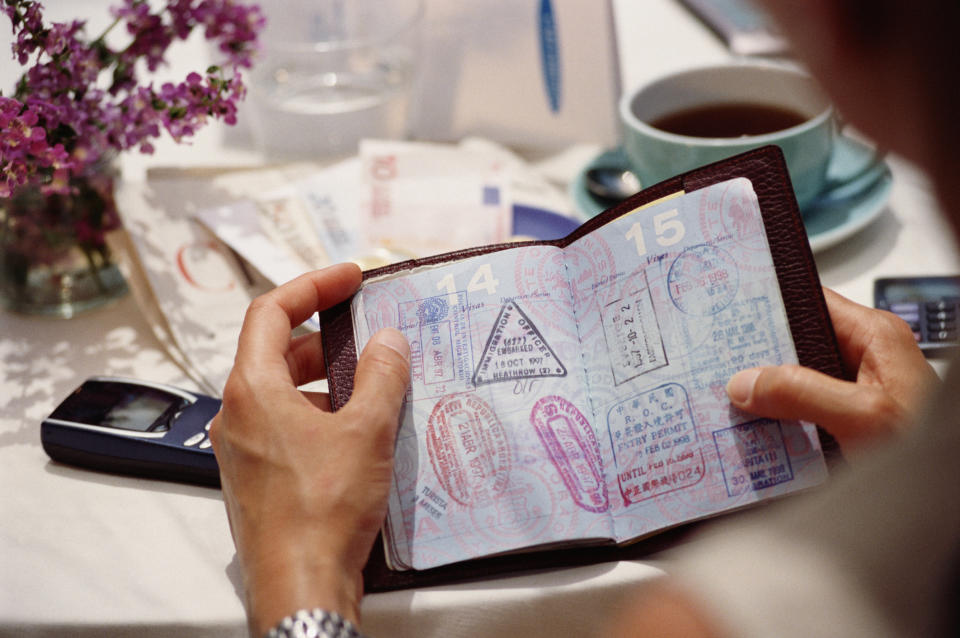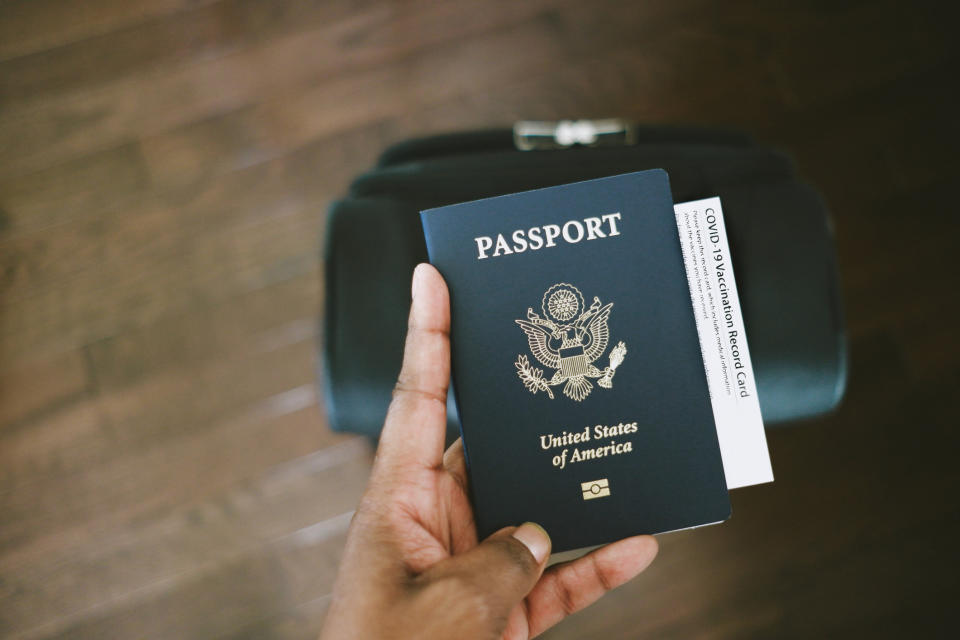A couple of years ago, I was invited to attend a friend’s wedding in July, in his wife’s hometown in northern Italy. As the date approached, I mentioned to another friend who was also planning to travel from the U.S. for the celebration that I was glad I had renewed my passport, as it was expiring in May. She cheerfully replied that she was ready because her passport would not expire until September.
I was wrong. My friend was not prepared because Italy, as part of the Schengen Area of European countries, requires visitors to have a passport valid for at least three months beyond the departure date.
Fortunately, she was able to expedite her passport renewal and make it to the wedding, but her situation highlighted a common misconception about international travel.
Having a valid passport is not always enough


“Many of us think we need a valid passport to travel the world beyond our borders, but what many people don’t realize is that a valid passport alone might not be enough,” said Katy Nastro, a spokeswoman for the flight alert service Going.
In fact, many countries require that your passport be valid for a certain period of time beyond your intended travel dates. The most common durations are three to six months after the date of your return flight to the U.S.
“Many countries, particularly in Asia and the Middle East, require a validity of six months beyond the date of travel, meaning that if you are travelling to Vietnam in July, for example, your passport must be valid at least until January,” Nastro explained. “If you arrive at the airport and try to board your flight, some airlines will not even let you board without this important time frame, in which case you risk not being able to make your trip.”
Each country has a different passport validity period, so international travelers should familiarize themselves with these policies before booking a trip.
“Some countries may require three months, while others may require six months or even more,” said David Alwadish, founder and CEO of passport and visa service ItsEasy.com. “Where some countries also require a visa and grant a paper visa for several years, they may require at least one year or more (of) validity.”
The specific requirement depends on a variety of factors, including the country’s immigration policies, bilateral agreements, and security risk considerations.
“It is therefore crucial for travelers to thoroughly check the entry requirements of the specific country they plan to visit to ensure compliance with passport validity regulations,” Alwadish stressed.
Both he and Nastro have noted a lack of understanding regarding passport validity rules.
“It is common for people to be unaware of the three- or six-month passport validity rule, particularly among those who do not travel frequently or have never encountered it,” Alwadish said. “The rule may not be applied uniformly across countries, leading to misconceptions among travelers. The complexity of immigration policies, which may change, adds to the challenge of staying informed. Finally, passport validity requirements may not be sufficiently publicized, leading to lower awareness among travelers.”
What is the reason for these requirements?


“These requirements ensure that visitors have a valid passport for the duration of their intended stay, as well as for a backup period in case of unexpected delays or extensions,” Alwadish explained.
Maybe you’ve planned a two-week stay in the South of France, for example, but after a few days you realise that you actually want to stay for two months. Or maybe something happens that’s out of your control.
“This is mostly done out of an abundance of caution,” Nastro said. “Let’s say you get seriously ill or have an accident and then need to stay in that country longer than planned. If your passport expires during that unplanned time, it can cause a mountain of problems when trying to leave the country.”
The validity period of the passport for international tourists provides an extra margin in case you suffer an injury that prevents you from flying for a while or delays your return for other personal reasons. The point is to take into account the fact that plans can change.
“Countries set a minimum of three or six months passport validity for foreign visitors in order to facilitate efficient immigration procedures, strengthen security measures and improve emergency management,” Alwadish said. “This ensures that visitors have a valid travel document throughout their stay and can respond effectively to unforeseen circumstances. In addition, these requirements promote fairness and reciprocity in visa policies, fostering balanced relations between countries.”
The specific duration varies from country to country and not all destinations have these requirements.
“For example, the Mexican government only requires that the passport be valid for the entire trip and not afterward,” Alwadish explained.
How to make sure you are fit to travel


“For many people, it’s not a problem since the passport is valid for 10 years,” Nastro said. “However, when you realize that it’s the year your passport expires, you could actually be running against a six-month clock, depending on where you’re traveling. It makes sense to go through the renewal process as soon as possible.”
She recommended renewing your passport a year before its expiration date so you know everything is taken care of in advance.
“With expedited processing and wait times at historic lows, we will most likely receive a new book sooner than expected,” Nastro added.
When it comes to passports and other important travel documents, advance planning is the most important thing.
“While some countries apply uniform rules to all foreign visitors, others may have different requirements based on the visitor’s nationality or specific visa arrangements,” Alwadish said. “It is critical that travelers check their destination country’s entry requirements to understand variations based on nationality.”
She recommended checking the website of your home country’s embassy or consulate in the place you want to visit. Most provide detailed information on entry requirements for foreign visitors. You can also check the State Department website or travel advisories from your destination’s immigration authority.
Once you have that information, compare your passport expiration date to your planned travel dates.
“To cross-reference with the country’s validity rules, you have to start from the day of return and add the number of months required for validity,” Alwadish explained. “The rule is usually between three and six months from the day of return, not the day of departure.”
Be sure to also check the rules of the airline you’re flying with, especially if you only have four or five months of validity after the date you return home.
“If you don’t have six months of validity from the date of your return trip, the airline has the power to turn you away, whether they are right or wrong,” Alwadish said. “You should call them and ask them to put a note in the system about this problem so they are aware before you arrive at the airport.”
Make sure your passport has enough blank pages and is not damaged. If you recently changed your name due to marriage, divorce, or another reason, your passport should reflect that as well. Don’t forget to check if your destination requires a visa or electronic travel authorization.
Should any issues arise, there are ways to get your travel documents quickly, but you can avoid additional stress and hassle by doing some extra checks in advance. Then, just relax and enjoy your international vacation.This article originally appeared in The Huffington Post.



